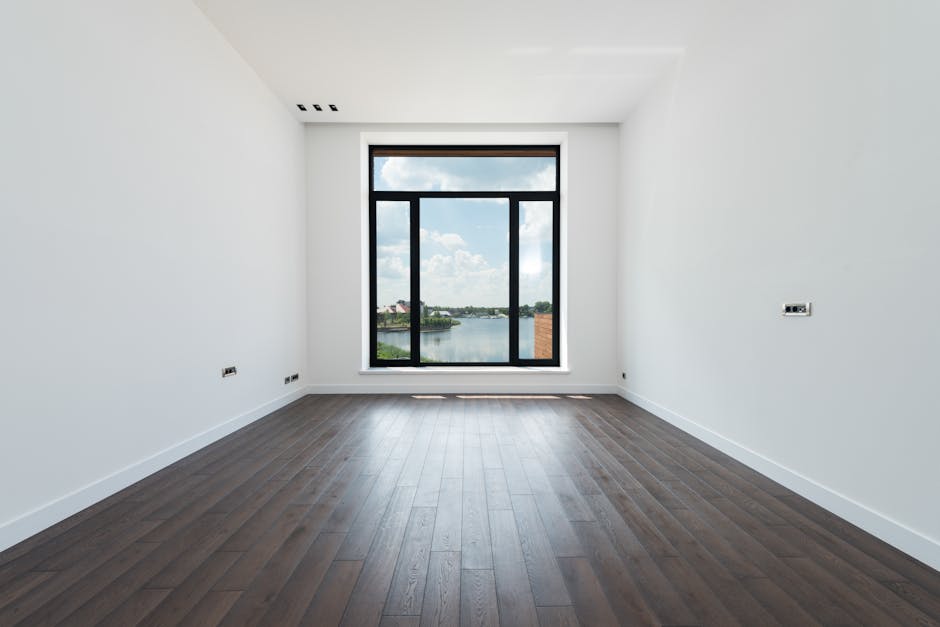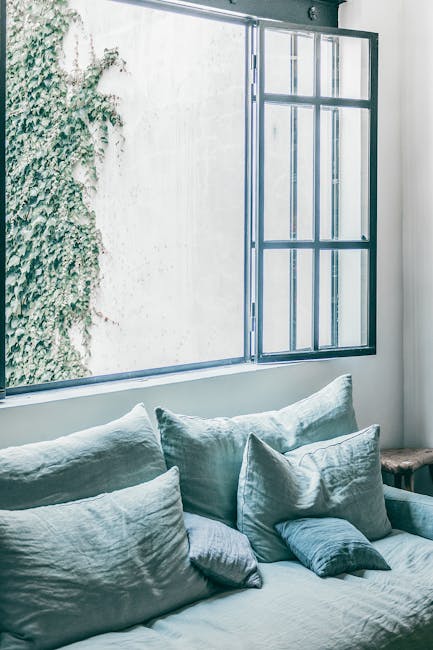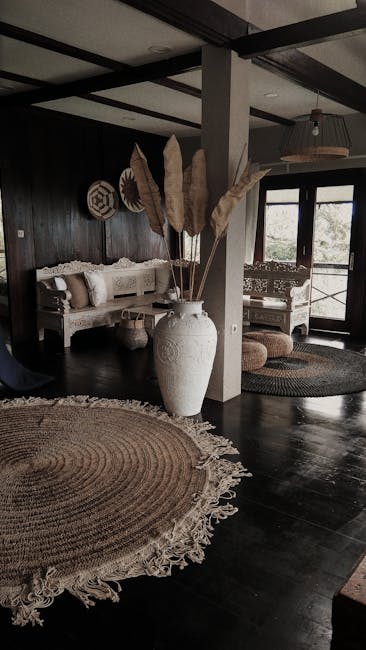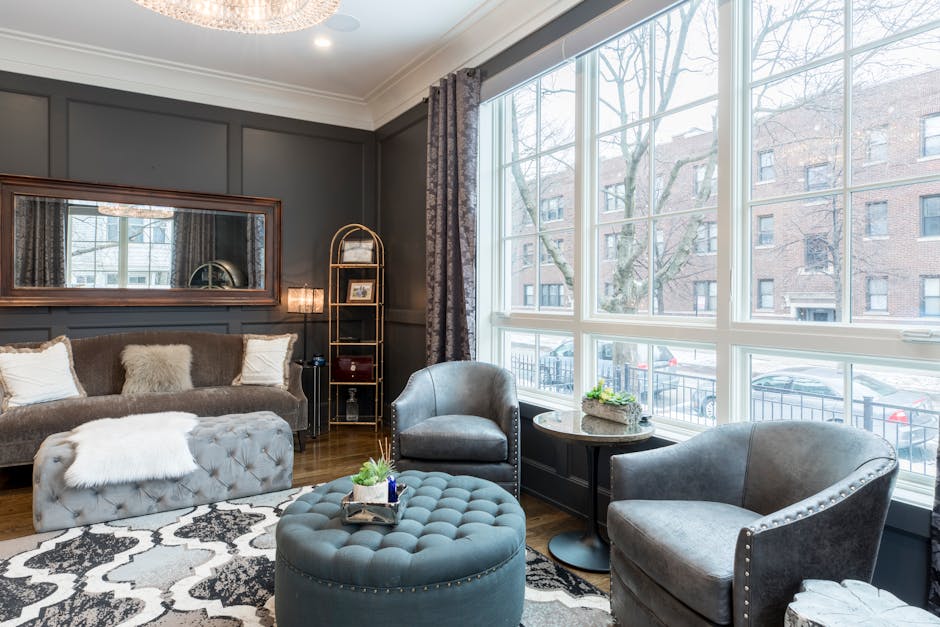Imagine walking into a room filled with scattered clothes, piles of paperwork, and a jumble of miscellaneous items. How does that make you feel? Overwhelmed? Stressed? Now, picture a clean, organized space where every item has its place. Feels calming, right? Maintaining a clean and clutter-free living space is not just about aesthetics; it’s a crucial aspect of our overall well-being. Let’s delve into why this is so important.
Key Takeaways
- A clean and clutter-free living space enhances mental health and social connections.
- Regular maintenance and deep cleaning practices contribute to a clutter-free home.
- Decluttering can improve sleep quality.
- Cleaning and decluttering have physical health benefits.
- Effective habits and storage solutions can help maintain a clutter-free environment.
- The KonMari method offers a systematic approach to decluttering.
- Seasonal decluttering helps keep up with changing needs and maintains an organized home year-round.
The Psychological Benefits of a Clutter-Free Living Space
Enhancing Mental Health
Reducing stress and anxiety
A cluttered environment can lead to increased stress and anxiety. When your surroundings are chaotic, it’s hard to relax, both physically and mentally. By maintaining a clean and organized space, you can significantly reduce these negative feelings and promote a sense of peace and tranquility.
Calming effect on the mind
A clean and clutter-free space has a calming effect on the mind. It allows you to focus better, be more productive, and feel less irritable. It’s like a breath of fresh air that clears your mind and helps you think more clearly.
Impact on Social Connections
Facilitating social interactions
A clean and organized home is more inviting, making it easier to host gatherings and strengthen social connections. It also reflects positively on you, showing that you value cleanliness and order.
Creating a welcoming environment for guests
A clutter-free living space creates a welcoming environment for guests. It shows respect for your visitors and makes them feel comfortable and at ease. Plus, you won’t have to scramble to clean up when unexpected guests arrive!

The Role of Regular Maintenance in Achieving a Clutter-Free Home
Importance of Routine Cleaning
Daily upkeep strategies
Routine cleaning is essential for maintaining a clutter-free home. This includes daily tasks like washing dishes, making the bed, and tidying up. By doing a little bit each day, you can prevent clutter from accumulating and becoming overwhelming.
Long-term decluttering benefits
Regular cleaning also has long-term benefits. It helps you stay on top of things and makes deep cleaning less daunting. Plus, a clean and organized home is easier to maintain, saving you time and effort in the long run.
Deep Cleaning Practices
Periodic intensive cleaning
In addition to daily upkeep, periodic deep cleaning is necessary to maintain a clutter-free home. This involves thoroughly cleaning each room, getting rid of unnecessary items, and organizing your belongings. It’s a chance to reset your space and make it feel fresh and clean.
Elimination of hidden clutter
Deep cleaning also helps eliminate hidden clutter. This includes things like dust and dirt that accumulate over time, as well as items that are out of sight but still contribute to clutter. By tackling these hidden areas, you can create a truly clean and clutter-free environment.

The Connection Between Decluttering and Improved Sleep Quality
Organizing the Bedroom for Better Sleep
Tidiness and relaxation
A tidy and organized bedroom can significantly improve your sleep quality. Clutter can be distracting and stressful, making it harder to relax and fall asleep. By keeping your bedroom clean and clutter-free, you can create a peaceful environment conducive to restful sleep.
Designing a restful environment
Designing a restful environment involves more than just decluttering. It also includes things like choosing calming colors, using comfortable bedding, and minimizing noise and light. By paying attention to these details, you can enhance your sleep quality and wake up feeling refreshed and rejuvenated.

Physical Health Advantages of Cleaning and Decluttering
Cleaning as Exercise
Physical activity during cleaning tasks
Cleaning involves a lot of physical activity, from vacuuming and mopping to lifting and moving items. This can serve as a form of exercise, helping you stay active and burn calories. So next time you’re cleaning, remember that you’re not just improving your living space, but also your physical health!
Health benefits of an active lifestyle
An active lifestyle has numerous health benefits, including improved cardiovascular health, better mood, and increased longevity. By incorporating cleaning into your routine, you can contribute to these benefits and lead a healthier life.
Preventing Health Issues
Avoiding allergens and dust
A clean and clutter-free home helps prevent health issues by reducing allergens and dust. This is particularly important for people with allergies or asthma, as it can help alleviate symptoms and improve air quality.
Promoting a sanitary living space
Regular cleaning also promotes a sanitary living space, reducing the risk of illness and infection. This is especially crucial in areas like the kitchen and bathroom, where germs can easily accumulate. By keeping these areas clean, you can protect your health and well-being.

Establishing Effective Habits for a Clutter-Free Environment
Daily Organization Routines
Creating a cleaning schedule
Creating a cleaning schedule can help you stay organized and maintain a clutter-free home. This involves setting specific times for cleaning tasks and sticking to them. It’s a practical way to manage your time and ensure that cleaning doesn’t get pushed aside.
Implementing the “One In One Out” rule
The “One In One Out” rule is a simple but effective strategy for preventing clutter. It means that for every new item you bring into your home, you should get rid of an old one. This helps keep your belongings in check and prevents accumulation of unnecessary items.
Long-Term Habit Formation
Consistency in decluttering
Consistency is key when it comes to decluttering. It’s not enough to do a big clean-up once and then let things pile up again. Instead, make decluttering a regular habit and incorporate it into your daily routine.
Building a mindset for organization
Building a mindset for organization involves changing your attitudes and behaviors towards clutter. It’s about recognizing the benefits of a clean and organized space and making a conscious effort to maintain it. This mindset shift can make decluttering less of a chore and more of a lifestyle.

Maximizing Living Space Through Storage Solutions
Effective Storage Techniques
Utilizing vertical space
Utilizing vertical space is a smart way to maximize your living space. This can involve using shelves, hooks, and wall-mounted storage solutions. It’s a great way to keep your belongings organized without taking up too much floor space.
Multipurpose furniture
Multipurpose furniture can also help maximize your living space. This includes things like storage ottomans, sofa beds, and tables with built-in storage. These pieces can serve multiple functions, saving you space and reducing clutter.
Creating an Open and Airy Home
Perception of spaciousness
A clean and clutter-free home can create a perception of spaciousness, even in smaller spaces. By keeping your belongings organized and out of sight, you can make your home feel larger and more open.
Psychological impact of open areas
Open areas have a positive psychological impact. They can make you feel more relaxed and less confined, contributing to your overall well-being. Plus, they allow for better airflow and natural light, enhancing the comfort and appeal of your home.

Step-by-Step Approach to Decluttering
Room-by-Room Strategy
Breaking down the decluttering process
Decluttering can be overwhelming, especially if you have a lot of stuff. A room-by-room strategy can make the process more manageable. Start with one room and focus on it until it’s completely decluttered before moving on to the next.
Achieving consistent cleanliness
A room-by-room strategy also helps achieve consistent cleanliness. By thoroughly cleaning each room, you can ensure that every part of your home is clean and clutter-free. This can make your home more enjoyable and easier to maintain.

The KonMari Method and Its Influence on Clutter-Free Living
Principles of the KonMari Method
Keeping items that spark joy
The KonMari method, developed by Marie Kondo, is a systematic approach to decluttering. One of its main principles is to keep only items that spark joy. This means getting rid of things that no longer serve you or bring you happiness.
Discarding non-essential belongings
Another principle of the KonMari method is to discard non-essential belongings. This involves evaluating each item and deciding whether it’s necessary or not. By doing this, you can reduce clutter and create a more meaningful and joyful living space.
Intentional Living and Organization
Mindfulness in possession
The KonMari method promotes mindfulness in possession. It encourages you to be intentional about what you keep and to value each item. This mindful approach can lead to a deeper appreciation for your belongings and a more fulfilling living environment.
Simplifying life through decluttering
Simplifying life through decluttering is a key aspect of the KonMari method. By reducing clutter, you can simplify your life and focus on what truly matters. This can lead to greater peace of mind and a higher quality of life.
The Benefits of Seasonal Decluttering
Keeping Up with Changing Needs
Adapting to seasonal variations
Seasonal decluttering involves adapting to seasonal variations and changing needs. For example, you might need to declutter your wardrobe as seasons change, getting rid of clothes you no longer wear and making room for new ones.
Reevaluating possessions regularly
Seasonal decluttering also involves reevaluating your possessions regularly. This gives you a chance to reassess what you need and don’t need, helping you keep your home clutter-free and organized.
Maintaining an Organized Home Year-Round
Preventing accumulation of clutter
Seasonal decluttering can help prevent the accumulation of clutter. By decluttering regularly, you can keep your home organized and manageable year-round.
Refreshing the living space periodically
Refreshing your living space periodically can make your home feel fresh and new. It’s a chance to rearrange your belongings, try new decor, and create a living space that reflects your current tastes and lifestyle.

Maintaining a clean and clutter-free living space is not just about having a tidy home. It’s about creating a peaceful and enjoyable environment that enhances your well-being. So why not start decluttering today? Your mind and body will thank you.
For more insights on personal well-being, check out our articles on practicing good hygiene habits, prioritizing self-care, and creating a calming self-care space at home.
Sources:
– 4 Fantastic Health Benefits of Being Clutter-Free
– A Clean Space Offers Health Benefits
– The Simple Guide to a Clutter-Free Home
Unclutter Your Mind: Discover the Joys of a Clean Space with Our Handy FAQ!
Why is it important to maintain a clean and clutter-free living space?
Maintaining a clean and clutter-free living space is crucial for several reasons. It can significantly reduce stress and anxiety by creating a more serene and manageable environment. A tidy space also promotes better hygiene, reducing the risk of allergies and illnesses. Furthermore, it can enhance productivity and focus by minimizing distractions and making it easier to find things when you need them.
How does clutter affect mental health?
Clutter can have a negative impact on mental health by overwhelming the senses and creating a sense of chaos. It can lead to increased stress, difficulty concentrating, and can even contribute to feelings of guilt or embarrassment. By clearing clutter, you can create a more peaceful and calming environment that supports mental well-being.
Can a clean living space actually save time?
Absolutely! A clean and organized space can save you time by making it easier to find what you need, when you need it. This reduces the time spent searching for misplaced items and allows for more efficient cleaning routines. In the long run, it can free up more time to enjoy your home and engage in activities you love.
What are some tips for maintaining a clutter-free home?
To maintain a clutter-free home, start by decluttering regularly and being mindful about what you bring into your space. Implement storage solutions that work for your lifestyle and make sure every item has a designated place. Develop a daily cleaning routine to tackle small tasks before they become overwhelming. Lastly, consider adopting a minimalist approach to possessions to keep clutter at bay.
How often should I declutter my living space?
The frequency of decluttering can vary depending on your lifestyle and the amount of new items you acquire. However, a good rule of thumb is to declutter seasonally, or at least twice a year, to reassess what you own and remove items that are no longer needed or bring you joy.
What is the best way to start decluttering if I’m overwhelmed?
If you’re feeling overwhelmed, start small. Choose one area or category to focus on, such as a single drawer or your clothing. Set a timer for a short period, like 15 minutes, and work in manageable chunks. As you make progress, you’ll gain momentum and confidence to tackle larger areas. Remember, decluttering is a process, and it’s okay to take it one step at a time.
Are there any psychological benefits to living in a clean space?
Yes, there are numerous psychological benefits to living in a clean space. It can lead to increased levels of happiness and a sense of accomplishment. A clean environment can also foster a sense of control and order, which can be particularly comforting during times of stress or uncertainty. Additionally, it can improve sleep quality by creating a more restful and relaxing bedroom environment.
How can I motivate myself to clean when I just don’t feel like it?
Motivation to clean can be sparked by setting a specific goal or envisioning how great your space will look and feel once it’s tidy. You can also make cleaning more enjoyable by listening to music or a podcast while you work. Rewarding yourself after completing a cleaning task can also provide an incentive. Lastly, consider the positive effects a clean space will have on your mood and productivity as motivation.
What should I do with items I no longer need but are still in good condition?
Items that are no longer needed but are still in good condition can be donated to charity, sold online, or given to friends or family. This not only clears space in your home but also ensures that the items can be useful to someone else. It’s a sustainable choice that benefits the community and the environment.
How can I involve my family in maintaining a clean and clutter-free home?
Involving your family in maintaining a clean home can be achieved by assigning age-appropriate chores and making cleaning a shared responsibility. Create a cleaning schedule that includes everyone and make it a fun, collaborative activity. Encourage decluttering by having each family member choose items to donate or discard. By working together, you can maintain a tidy home and teach valuable life skills.



